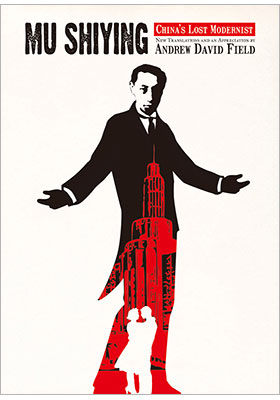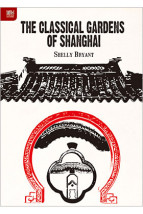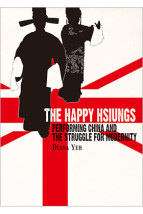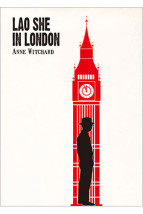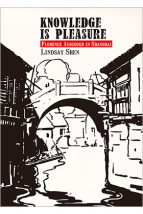Mu Shiying
China’s Lost Modernist
(穆時英:近代中國作家的精品)
ISBN : 978-988-8208-14-2
RAS China in Shanghai
March 2014
188 pages, 5″ x 7″, 16 b&w illus.
- HK$140.00
Ebooks
Also Available on
Shanghai’s “Literary Comet”
When the avant-garde writer Mu Shiying was assassinated in 1940, China lost one of its greatest modernist writers while Shanghai lost its most detailed chronicler of the city’s Jazz-Age nightlife. Mu’s highly original stream-of-consciousness approach to short story writing deserves to be re-examined and re-read. As Andrew Field argues, Mu advanced modern Chinese writing beyond the vernacular expression of May Fourth giants Lu Xun and Lao She to reveal even more starkly the alienation of a city trapped between the forces of civilization and barbarism in the 1930s.
Mu Shiying: China’s Lost Modernist includes translations of six short stories, four of which have not appeared before in English. Each story focuses on Mu’s key obsessions: the pleasurable yet anxiety-ridden social and sexual relationships in the modern city, and the decadent maelstrom of consumption and leisure epitomized by the dance hall and nightclub. In his introduction, Field situates Mu’s work within the transnational and hedonistic environment of inter-war Shanghai, the city’s entertainment economy, as well as his place within the wider arena of Jazz-Age literature from Berlin, Paris, Tokyo and New York.
“Mu Shiying is a legendary figure of 1930s Shanghai. His dazzling chronicle of modern Shanghai gave rise to Chinese modernist literature. His meteoric career as a writer, a flâneur, and allegedly a double agent testifies to cosmopolitanism at its most flamboyant, brilliant and enigmatic. Andrew Field’s translation is concise and lively, and his account of Mu Shiying’s adventure in modern Shanghai is itself a fascinating story. This is a splendid book for anyone interested in the dynamics of Shanghai modern.” —David Der-wei Wang, Harvard University
“Mu Shiying was one of China’s pioneer modernists, and his stories are full of inventive touches, including his own experimental technique of stream-of-consciousness, that evoke the emergent splendour of urban decadence of Shanghai in the 1930s. This English translation of his most important stories edited and translated by an acknowledged historian of Shanghai culture is long overdue.” —Leo Ou-fan Lee, author of Shanghai Modern: The Flowering of a New Urban Culture in China: 1930–1945
“During his short, tumultuous life, Mu Shiying produced a small oeuvre of remarkable short stories that stand out in the wider context of modern Chinese literature. He captures the essence of the Shanghai jazz age with his racy, musical, and often fragmented prose, which blends a genuine excitement about the wonders of “the Paris of the East” with an at times sobering undertone of social critique. Unlike some of the more explicitly left-wing writers of his time, Mu never relinquishes the medium for the message. He is first and foremost a writer of experimental, original work that even nowadays has lost nothing of its power. As a teacher of modern Chinese literature, I am delighted that this new translation has become available.” —Michel Hockx, Director, SOAS China Institute
“Mu’s stories give readers a glimpse into the lively and vibrant, yet sometimes empty and soulless life in Shanghai during the early 1930s.” —Asian Review of Books, 26 May 2014
“Field is a careful translator who clearly strives for a compromise among readability, faithfulness, and completeness. [… His] volume is a most welcome contribution to the canon of Republican-era literature in translation. It will not only heighten our appreciation of Mu Shiying, but add new layers of complexity to this intriguing literary figure of Shanghai’s golden age.” —Modern Chinese Literature and Culture, August 2014
“This book will be of value to people with an interest in modern Chinese literature or republican Shanghai, and it will help demonstrate the accomplishments of Chinese modernist writing in the 1930s to a wider audience. [It] fills a definite gap in the Chinese literature available in English translation.” —Christopher Rosenmeier, H-Net Reviews

